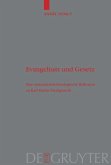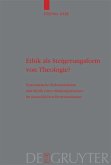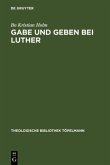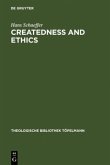This study advances the thesis that prayer can be understood as the key to the fundamental structures of Karl Barth's Church Dogmatics. A particular focus is on the question of how humans are to be perceived as active and receptive subjects in the encounter with God. In the development of the argument, therefore, a key function is attributed to the concept of reciprocity. In this horizon, the relationship is analysed between the petition - which for Barth is central - and the response (as a realisation of the divine relationship). In this, the encounter with God is realised positively through the petition expressing human neediness by the prayer turning into praise. Here, a fundamental hermeneutic structure of Barth's is revealed - Barth wants to do justice to the religious experience in prayer by the very act of not thematising it. It is, however, rehearsed indirectly through the dogmatic statements of his theology.
Nach der These dieser Untersuchung kann das Gebet als Schlüssel zu den grundlegenden Strukturen der Kirchlichen Dogmatik Karl Barths verstanden werden. Im Fokus steht die Frage, wie der Mensch als handelndes und empfangendes Subjekt in der Gottesbegegnung zu denken ist. In der Ausarbeitung kommt deshalb dem Begriff der Reziprozität eine Schlüsselfunktion zu. In diesem Horizont wird das Verhältnis zwischen der von Barth zentral gestellten Bitte und der Erhörung (als Verwirklichung der Gottesbeziehung) analysiert: Demzufolge realisiert sich die Gottesbegegnung positiv durch das Bedürftigkeit zum Ausdruck bringende Bittgebet darin, dass das Gebet ins Lob übergeht. Dadurch kommt eine hermeneutische Grundstruktur bei Barth zum Vorschein: Der religiösen Erfahrung im Gebet will Barth gerade dadurch gerecht werden, dass er sie nicht thematisiert. Sie wird dagegen indirekt durchgespielt durch die dogmatischen Aussagen seiner Theologie.
Nach der These dieser Untersuchung kann das Gebet als Schlüssel zu den grundlegenden Strukturen der Kirchlichen Dogmatik Karl Barths verstanden werden. Im Fokus steht die Frage, wie der Mensch als handelndes und empfangendes Subjekt in der Gottesbegegnung zu denken ist. In der Ausarbeitung kommt deshalb dem Begriff der Reziprozität eine Schlüsselfunktion zu. In diesem Horizont wird das Verhältnis zwischen der von Barth zentral gestellten Bitte und der Erhörung (als Verwirklichung der Gottesbeziehung) analysiert: Demzufolge realisiert sich die Gottesbegegnung positiv durch das Bedürftigkeit zum Ausdruck bringende Bittgebet darin, dass das Gebet ins Lob übergeht. Dadurch kommt eine hermeneutische Grundstruktur bei Barth zum Vorschein: Der religiösen Erfahrung im Gebet will Barth gerade dadurch gerecht werden, dass er sie nicht thematisiert. Sie wird dagegen indirekt durchgespielt durch die dogmatischen Aussagen seiner Theologie.








